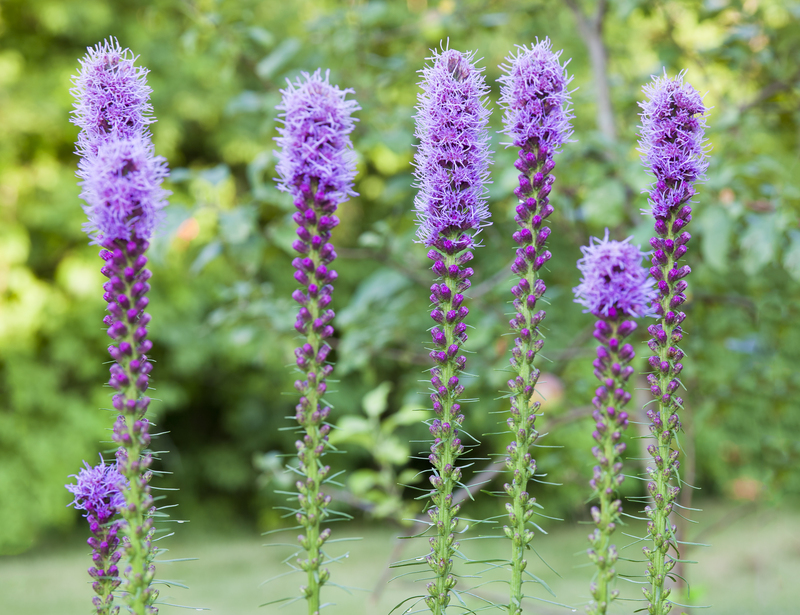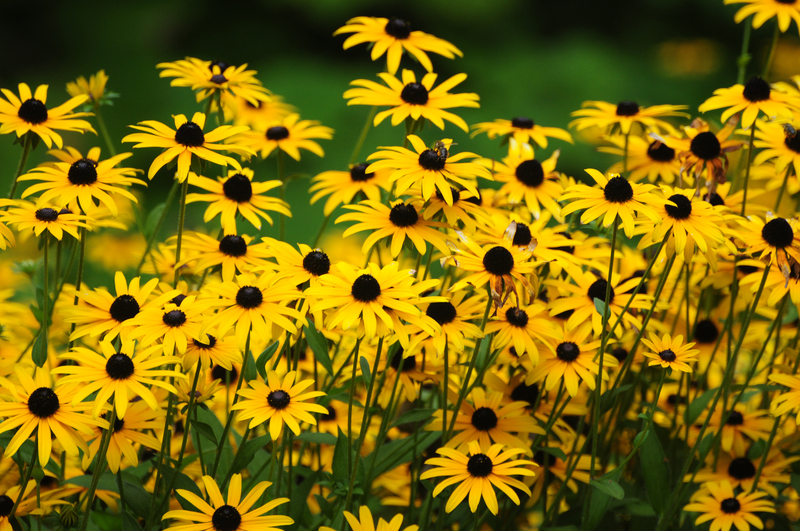Crafting Life-Giving Soil from Organic Waste
Posted on 26/08/2025
Crafting Life-Giving Soil from Organic Waste: Transforming Trash into Treasure
In an age where sustainable living is increasingly vital, the focus on crafting life-giving soil from organic waste offers a practical and rewarding solution to waste management and environmental preservation. By recycling food scraps, yard clippings, and other natural debris, you can enrich your garden, protect our planet, and feed future generations. This comprehensive guide explores the methods, benefits, and nuances of transforming organic waste into nutrient-rich soil--empowering you to take actionable steps in your home or community.

Why Transform Organic Waste Into Soil?
Did you know that a staggering one-third of all food produced globally is wasted, resulting in severe environmental and economic consequences? Instead of letting organic matter rot in landfills--where it emits harmful greenhouse gases like methane--you can repurpose this waste into life-giving soil.
The Environmental Impact
- Reduced Landfill Use: Decreasing landfill dependency lowers soil and water contamination risks.
- Lower Carbon Footprint: Turning organic matter into compost minimizes methane emissions compared to landfill disposal.
- Soil Regeneration: Restores depleted soil, supporting sustainable agriculture and biodiversity.
The Agricultural and Economic Value
- Enhanced Crop Yields: Compost amends soil, boosting fertility and water retention.
- Cost Savings: DIY compost reduces the need for chemical fertilizers and curtails waste disposal fees.
- Community Resilience: Urban and suburban areas can lower municipal waste costs and promote local food production.
Understanding the Science Behind Healthy Soil Creation
Quality life-giving soil thrives on a well-balanced mixture of organic waste and key microorganisms. The secret lies in the right combination of brown (carbon-rich) and green (nitrogen-rich) materials, moisture, oxygen, and time. This balance creates the ideal environment for fungi, bacteria, earthworms, and other soil builders to break down waste into humus--the heart of fertile earth.
Key Components of Soil Fertility
- Organic Matter: Decomposed plant and animal material that supplies essential nutrients.
- Microbial Communities: Bacteria, fungi, and protozoa that facilitate decomposition and nutrient cycling.
- Structure and Texture: Well-amended organic soil supports root aeration and moisture control.
Transforming organic waste into healthy soil is a natural process, but understanding its mechanisms enables more effective composting and better results for gardens and landscapes.
Methods for Crafting Life-Giving Soil From Organic Waste
There are various composting techniques suited to different lifestyles, climates, and household sizes. Let's examine the most popular methods for crafting nutrient-dense soil from your organic waste.
Backyard Composting
- Traditional Pile or Bin: Layer "greens" (fruit peels, coffee grounds, grass clippings) with "browns" (dry leaves, cardboard, wood chips) and maintain moisture.
- Turn Regularly: Aerate the pile with a pitchfork every 1-2 weeks to prevent odor and speed up decomposition.
- Maturation: Finished compost is dark, crumbly, and earthy-smelling, ready to feed your soil.
Vermicomposting (Worm Bins)
- Utilizes Red Wigglers: These specialized worms thrive on fruit and veggie scraps in enclosed bins.
- Fast Processing: Worms create nutrient-rich castings and tea, ideal for urban growers.
- Low Odor: When managed well, worm bins are clean, compact, and perfect for apartments.
Bokashi Composting
- Anaerobic Fermentation: Uses bran inoculated with beneficial microbes to pickly food scraps in airtight containers.
- Includes Proteins and Dairy: Bokashi systems handle meat, cheese, and cooked foods that don't work in traditional compost piles.
- Rapid Transformation: "Pre-digested" waste is ready to finish breaking down in soil in under a month.
Community Composting Initiatives
- Shared Facilities: Neighbors collaborate to collect organic waste and produce rich compost at scale.
- Education and Outreach: Builds local awareness of sustainable food systems and soil ecology.
- Resource Exchange: Finished compost often supports community gardens, parks, and urban agriculture projects.
Step-by-Step Guide: How to Make Life-Giving Soil From Organic Waste
Ready to get started? Here's a step-by-step guide to crafting soil from your kitchen and yard waste:
Step 1: Select Your Composting Method
- For yards: Traditional piles, bins, or tumblers work best.
- For small spaces: Worm bins and bokashi systems fit under sinks or on balconies.
- For renters: Seek nearby community drop-off programs or shared bins.
Step 2: Gather Acceptable Materials
- Browns: Dry leaves, twigs, shredded newspaper, cardboard, straw.
- Greens: Vegetable peels, fruit scraps, tea bags, coffee grounds, grass clippings.
- Avoid: Meat, dairy, fatty foods (unless using bokashi), diseased plants, glossy paper.
Step 3: Build and Maintain Your Pile/Bin
- Create Layers: Alternate between browns and greens for optimal decomposition.
- Balance Moisture: Compost should be as damp as a wrung-out sponge.
- Aerate: Turn the pile or stir the bin to introduce oxygen.
- Monitor Progress: A temperature rise means active decomposition--lowering temperature signals maturation.
Step 4: Harvest and Use Your Finished Compost
- Cure the Compost: Let finished material sit for several weeks to stabilize nutrients.
- Apply to Soil: Top-dress gardens, mix into potting soil, or enrich planting holes.
- Share: Donate surplus to neighbors, schools, or community gardens.
Innovative Tools and Tips for Efficient Organic Waste Recycling
Modern composting is easier than ever with helpful tools and clever solutions that optimize the soil-crafting process. Consider these strategies for making nutrient-rich soil from waste:
- Compost Tumblers: Enclosed barrels turn easily, control pests, and speed up transformation of organic waste into soil.
- Kitchen Compost Pails: Collect scraps odor-free with carbon filters before transferring to your main pile or bin.
- Compost Thermometers: Ensure your pile stays in the ideal temperature range (130-160?F) for safe and rapid decomposition.
- Shredders and Choppers: Breaking down large twigs or vegetable peels increases surface area for faster composting.
Pro Composting Tips
- Shred or Chop Waste: The smaller the materials, the quicker they will decompose into life-giving soil.
- Maintain the Balance: Keep the carbon to nitrogen ratio around 25-30:1 for best results.
- Prevent Odors: Cover food scraps with browns, never leave them exposed, and ensure regular turning/aeration.
- Embrace Diversity: Use a variety of organic waste to promote balanced nutrients and robust microbial life in your finished soil.
Common Challenges and Troubleshooting
While crafting life-giving soil from organic waste is a straightforward process, even experienced composters may face occasional hurdles. Here's how to address frequent issues:
Foul Odors
- Problem: Rotting smell indicates too much moisture or lack of aeration.
- Solution: Add more dry browns, aerate frequently, and avoid overwatering.
Pests and Critters
- Problem: Fruit flies, rodents, or raccoons attracted to exposed food scraps.
- Solution: Cover all greens with a generous brown layer, secure bins, and avoid adding meat or dairy unless using a pest-proof system.
Slow Decomposition
- Problem: The compost pile isn't heating up or breaking down quickly.
- Solution: Chop materials smaller, rebalance browns/greens, add moisture or aerate more frequently.
Benefits of Life-Giving Soil for Gardens and Ecosystems
Once your homemade soil from organic waste is ready, its positive impact stretches far beyond your backyard:
- Improved Soil Health: Organic compost boosts beneficial microbial populations and structure, supporting resilient crops.
- Water Conservation: Healthy, organic-rich soil retains water better, reducing irrigation needs and drought stress.
- Pollution Prevention: Compost naturally binds toxins, keeping them out of waterways and food supplies.
- Sustainable Food Production: Compost enables pesticide reduction and fosters nutrient-dense harvests.
- Carbon Sequestration: Healthy soils capture atmospheric carbon, helping fight climate change at the grassroots level.
Spreading the Message: Education and Advocacy
Inspiring others to transform organic waste into fertile soil can multiply the benefits for whole communities and regions. Ways to amplify your environmental impact include:
- Hosting workshops or garden tours demonstrating your composting system.
- Partnering with schools to create zero-waste lunch programs or learning gardens.
- Lobbying for municipal compost collection and sustainable waste policies.
- Joining local food cooperatives or community gardens to support circular urban agriculture.

Frequently Asked Questions About Crafting Soil from Organic Waste
How long does it take to create usable compost?
Depending on method, size of pile, and materials, composting takes from one month (in hot, actively managed systems) up to a year (in passive, cold piles). Turn and balance materials regularly for the fastest transformation of organic waste into soil.
Can I compost during winter?
Absolutely! Microbial action slows but doesn't stop in cold weather. Insulate your pile with straw or leaves, and keep adding to it--the real breakdown will speed up once temperatures rise.
What if I don't have a garden?
Many urban dwellers share compost bins with neighbors, donate scraps to community gardens, or use finished compost as indoor plant potting mix. Every bit of organic waste saved from landfill helps!
Conclusion: Your Role in Closing the Organic Waste Loop
Crafting life-giving soil from organic waste is a transformative practice that nurtures both our environment and our communities. Whether you have a backyard or a windowsill, your contributions matter. From reducing landfill overflow to growing more vigorous crops, every banana peel and coffee ground you recycle is a step toward a healthier planet. Remember: Soil is life, and by turning waste into wonder, you become a steward for future generations.
Start today--compost, nurture, and watch your corner of the world blossom with life.
Latest Posts
The rise of container gardening: A modern green revolution
DIY Delight: Cultivating a Herb Paradise
Channel serenity through enchanting Zen garden designs
Harmonizing Landscape Design with Pet Joy and Safety
Nature's Sculpture: New Horizons in Hedge Trimming Shapes and Techniques

